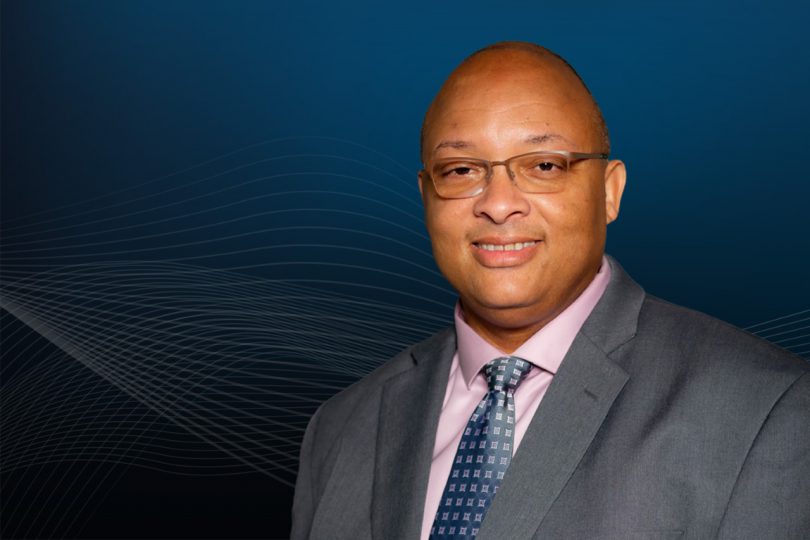Each week, PRsay will interview one of the nominees for the 2022 PRSA Board of Directors.
Name: David Marshall, Ph.D., APR
Location: Baltimore
Current job title: Professor and Chair of The Department of Strategic Communication in the School of Global Journalism & Communication at Morgan State University
Board nominee position: Director-at-Large
Alma mater: Morgan State University
Number of years as a PRSA member: 3
What first attracted you to PRSA as a member?
When I was hired to chair the Department of Strategic Communication — affectionately known as SCOM — at Morgan in 2018, our founding dean DeWayne Wickham insisted that our department be more aligned to our professional society to ensure that our students would be connected to the most up-to-date industry practices. The idea is to improve their chances for entry-level career opportunities upon graduation.
For our academic program, our professional society is PRSA. The year before I was hired at Morgan, the department had successfully petitioned for a new PRSSA Chapter, so we were well on our way to a growing relationship with PRSA.
As part of our tenure process here in SCOM, faculty must hold a Ph.D., must earn the Accreditation in Public Relations before tenure and must be active in PRSA. I came in as a tenured and full professor, but without the APR and not being a member of PRSA. Although I was already tenured, the expectation was that I would lead by example for my faculty. Therefore, I immediately joined PRSA and the PRSA Maryland Chapter and got to work locally. I started preparing for the APR and, as the expression goes, the rest is history.
Why did you decide to pursue leadership roles within the Maryland Chapter, and then at the national level?
I actually fell into the roles, because immediately I fell in love with PRSA: its mission, professional/ethical standards and the amazing people I was meeting.
I became active right away because the Maryland Chapter reached out to me with multiple service opportunities. I took advantage of as many as I could. Before long, I had earned the Chapter’s Educator of the Year award, joined the board and was serving on several committees.
Anyone who has served on a board knows it is hard work and a lot of it, at that. When the opportunity came to lead the Chapter, I jumped at it because it was my way of giving back to the profession and helping our members.
It was not too long after that I got connected to PRSA, working on some national HBCU initiatives. I was also appointed to the national PRSA Educational Affairs Committee. The opportunity to serve on the PRSA Board seems like a natural progression to continue to help the profession at this critical time in our democracy.
I believe our organization is uniquely positioned to play a major role for good for all our stakeholders. I welcome the opportunity to help PRSA do some good in that way. I also see serving on the Board as a professional development opportunity, as I will be learning from some very talented professionals as we work together.
Based on your role as a PRSSA adviser, professor and department chair at Morgan State, how do you view the next generation of PR professionals/educators?
I can’t imagine that there has ever been a better time to enter the profession, especially for bright young minds who want to empower more ethical communication and battle disinformation.
Given the changing landscape of the profession, where PR pros are also increasingly expected to play well with marketing and other business functions at the corporate table, this is also a great time for thought leaders to reimagine the future for public relations, and for brands and industries to rethink business models for the next few decades.
In order to help young people take their rightful places in our profession, existing PR pros and educators must recommit to our core values and continue to teach. I see a future filled with increased collaboration between students who desire to enter the field and those already in the industry. I anticipate that professional development will play a much more significant role as the future of public relations evolves.
The next generation of PR educators will have to be more adept at teaching analytics and demonstrating how to show ROI at the workplace if students are going to be successful at getting entry-level jobs in the future.
John Elsasser is PRSA’s publications director and editor-in-chief of its award-winning publication, Strategies & Tactics. He joined PRSA in 1994.







